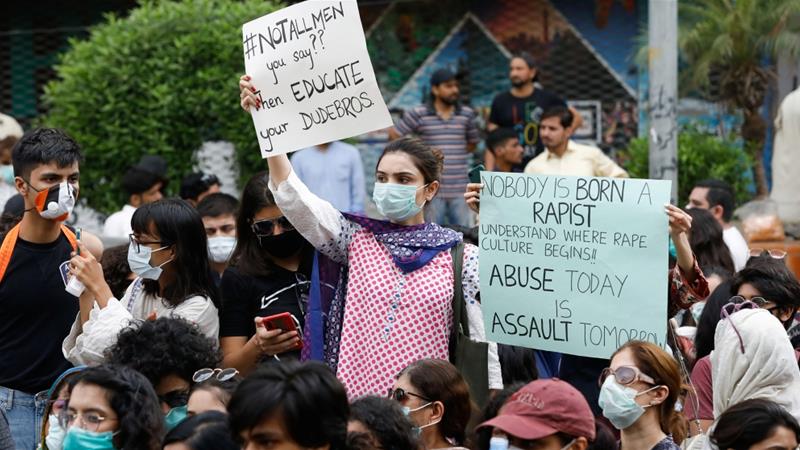
Pakistan was the first Muslim country to have a woman as a Prime Minister and yet it is one of the most unsafe places for women. Two incidents have brought this to light recently in Pakistan. A 5-year-old girl was raped, hit on the head and set on fire. Five days later, a woman was dragged from her car and sexually assaulted on a highway in front of her children.
Not only is law and order an issue but a patriarchal feudal culture that treats women as property and indulges in ‘blaming the victim.’ According to Mehnaz Akber Aziz, a member of the opposition in Pakistan’s National Assembly and a prominent children’s rights advocate, There is a lot of indifference to such cases from Pakistani officials. “There is no empathy, only silence. You are signaling to these people, the rapists, that ‘It’s OK, you can continue doing what you’re doing and there will be a way out, even if you’re arrested.”
This was reflected in the reaction of Lahore’s police chief to a gangrape that took place on the Lahore-Sialkot motorway on September 7. The Lahore police chief while discussing the case on television, questioned “why a mother of three travelling alone at night did not choose a “safer” road, and said: “If she had decided to travel via motorway, she should have checked her fuel tank because there were no petrol pumps on that route.” In a later interview, he claimed his statement had been “distorted,” but maintained his view.”
Civil society activists held protests in major cities across the country, against police handling the “motorway incident”. “The organizers of Saturday’s protests called for the police chief to be fired; a change in the law to criminalize acts of sexual violence that do not include penetration; structural reform to increase police accountability; training for police, prosecutors, and judges in handling sexual violence cases; protection for victims and witnesses; services and legal assistance for survivors; an end to abusive and scientifically meaningless “virginity examinations” including in sexual violence cases; and measures to improve safety of public spaces without restricting the mobility of women, trans, and non-binary people.”
As Saroop Ijaz of Human Rights Watch wrote “Women and girls will not have the freedom they are entitled to – to study, work, or live – until the government does more to protect their rights.”
![]()





